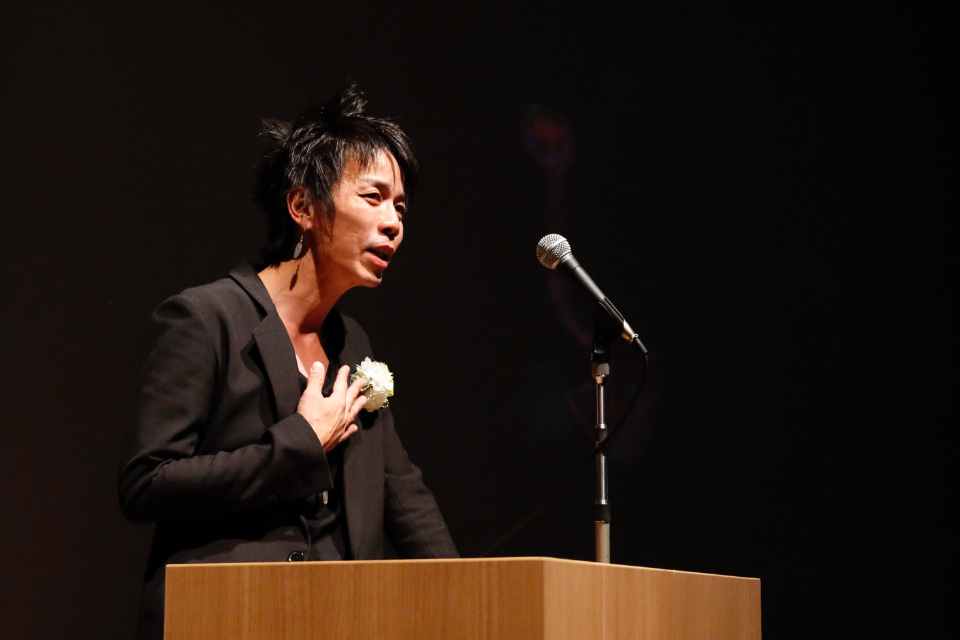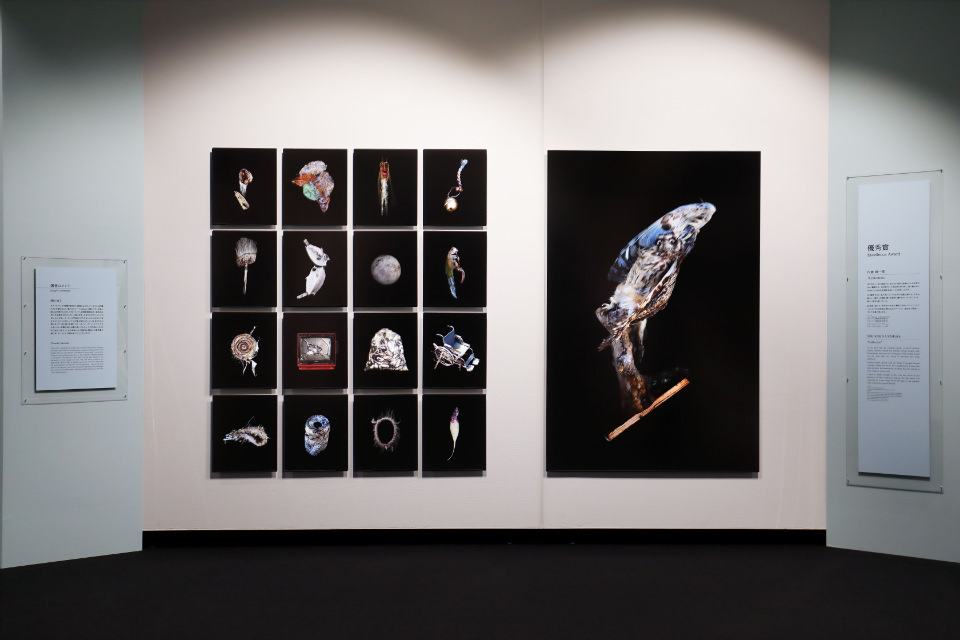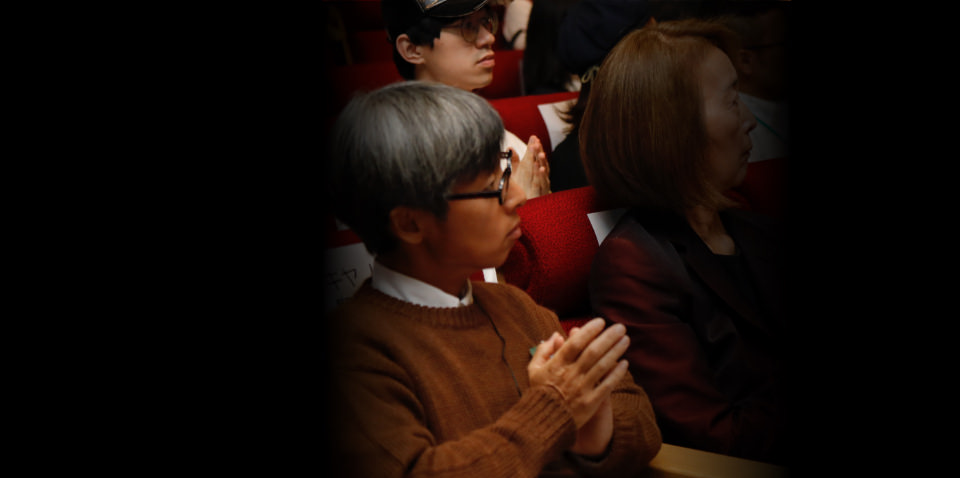PRESENTATION
I live in Nobeoka, a city in Miyazaki Prefecture. I create my artistic works while working in a photo studio near a town called Takachiho, where the gods are said to have lived in ancient times.
What compelled me to enter the New Cosmos of Photography was the tagline: “What can we do through photography? What is possible only through photography?” I interpreted that to be: “What can I do? What is it that only I can do?” This gives me an emotional boost at the start of every summer. And with that energy, I have continued to submit entries to the contest, and now I've finally managed to stand on this stage.
There are three things I consider important when creating artistic works.
The first is the many things scattered around you are wonderful precisely because of their proximity to you. Once you go out in town, there are countless materials for art lying around. I consider finding these one of the objectives of my photography.
The second is to take photos immediately, without a second thought, each time I encounter one of these materials. Of all the living things in the world, only humans can work a camera, and I'm grateful that only humans can recognize a subject and click the shutter button. One reason I take photos is because I'm a human born in this age when photography is possible.
The third thing of importance is not limiting myself to one theme. I have taken all kinds of photos up to this point. I started out with full-nude self-portraits, moved on to city street photography, and then took portraits in the 10 years since I started working at the family photo studio. I really like Ryusei Kishida's series of paintings of his daughter Reiko, so I once made up my niece to look like Reiko and photographed her. Another time, I photographed chained dogs and turned their boisterous forms into an artistic work.
I take my daughter, who is in Grade 1, out to play along regular walkways or at the sea, in the mountains, or along rivers. The photo studio is busy on weekends, so the only chance I have to spend with my daughter is Wednesdays, the studio's regular closing day. But I want to take photos on my day off too. To combine the two, for this work my daughter and I explored local ponds and other places and I photographed the things we found there. When we found a cracked ball for instance, my daughter asked: “Who used to play with that?” Our outings provoked many thoughts like these.
Everything with form will eventually crumble, and death will inevitably visit everything with life. So, with this collection series, I wanted to preserve in photos the messages and radiance I felt when meeting these things. I created this series with the feeling of bringing closure to these things in their final moments by preserving and presenting them in photos. This is why this collection is so important to me.
My daughter calls our outings “adventures”. When I ask myself — “What can we do through photography? What is possible only through photography?” — I think of photographers as adventurers. I love discoveries, and the thrill of discovery is what drives me to create.
All the photos in this collection have profound memories for me. But because the exhibit space is limited, I chose as the main piece an owl that had wanted to spread its wings as far as possible. This was a stuffed owl thrown out by a scrap factory along the sea. It was probably rejected as a defect because its right wing is slightly bent up. It hadn't been discarded for long, as its eyes were still moist. I took all the photos for this collection under sunlight, but when I looked down at the owl from my stepladder, it shone with a divine grace. Hence, my exhibit plan was to let each piece shine.


Why did you feel you had to make this “collection” with photos? Could you have not collected the actual objects?
(Uchikura)
I felt it was important after I photographed the objects under sunlight to return them to their original place. I could have perhaps represented them as paintings, but I decided to go with photos because I wanted to capture them as they were quickly in as little time as possible.
(Yasumura)
And why the black backgrounds?
(Uchikura)
Black absorbs light. A white background would have reflected the light. I used black backgrounds with the idea of concentrating as much light as possible on the object I was trying to present.
(Sawada)
I mistakenly thought these were taken in a studio. Now I understand why it's not possible to retake them. I did notice the focus was soft. That meant the impression wasn't very sharp overall.
(Uchikura)
I deliberately focused on the part I wanted to present, such as the eyes. That's why in some cases only part of the subject is in clear focus.

Judges’s Comment
Tomoko Sawada (selector)
I selected you for your future promise as an artist, on your persistence, in entering the contest over and over again, and on your ability to create so many pieces of artistic work.
This may be a little harsh, but I think it would have been better if you had explained your work more clearly in your presentation. I felt both your entry statement and your work to be poetic. Placing a poem on top of a poem makes it difficult for us to decipher your work and to understand your intention.
In your presentation just now, you conveyed your affection for photography and other emotions and your approach. But it would have been better if you had detailed your theme or concept. I get that you are a very passionate person, but I expect that you can broaden your possibilities as an artist if you are able to take an objective view and make objective explanations while maintaining your current perspective.